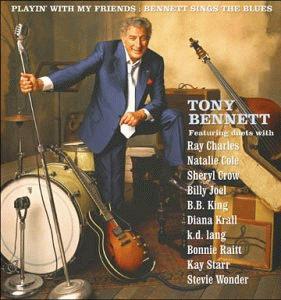
| Artist: | Tony Bennett |
| Title: | Playin' with My Friends: Bennett Sings the Blues |
| Released: | 2001.11.06 |
| Label: | Columbia Records |
| Time: | 57:27 |
| Producer(s): | Phil Ramone |
| Appears with: | |
| Category: | Jazz |
| Rating: | *****...... (5/10) |
| Media type: | CD |
| Purchase date: | 2002.03.06 |
| Price in €: | 16,68 |
| Web address: | www.tonybennett.net |